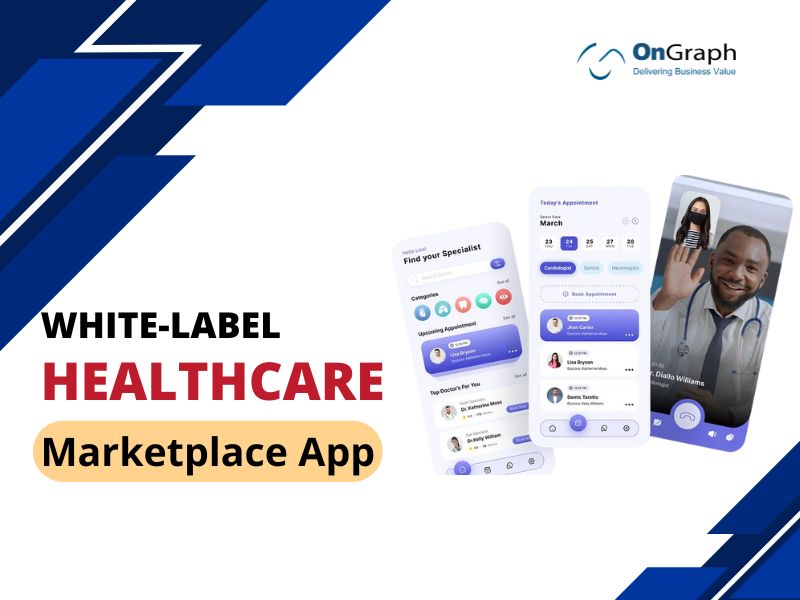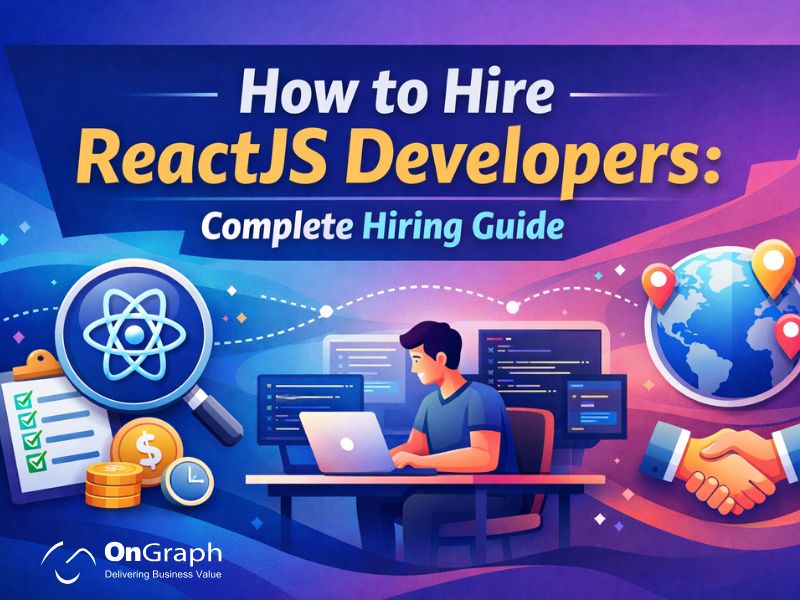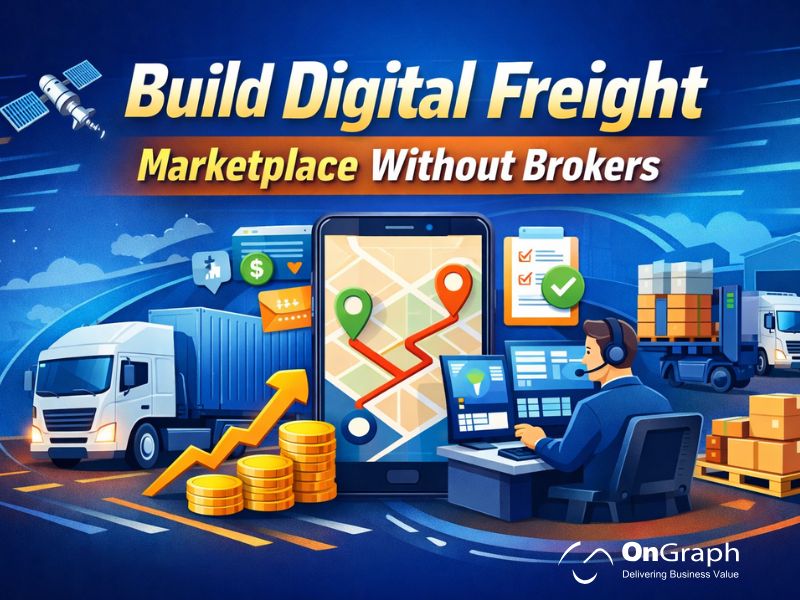In this article
- What exactly is a White-Label Healthcare Marketplace App?
- Key Features of a White-Label Healthcare Marketplace App
- Cost of Building a White-Label Healthcare Marketplace App
- Timeline: How Long Development Takes
- White-Label vs Fully Custom Build
- Example Case Studies & Statistics
- How to Estimate Your Project Budget & Choose a Healthcare App Development Company
- Trends & Add-Ons Shaping White-Label Marketplace Apps
- Conclusion
Launching a White-Label Healthcare Marketplace App can offer healthcare providers, clinics, and startups a fast, branded route into delivering on-demand medical services online.
Whether you want a Doctor On Demand App Development solution or a custom healthcare marketplace solution, understanding cost, essential features, and realistic timelines is crucial.
This article covers what you need to know to plan, budget, and choose the right partner—including what a healthcare app development company should deliver.
What exactly is a White-Label Healthcare Marketplace App?
A white-label solution is a pre-built, customizable application that you brand and adjust for your operations. Unlike building everything from scratch, a White-Label healthcare app allows you to configure provider profiles, booking flows, compliance modules, etc., while avoiding most of the groundwork.
You get speed, brand control, and technical maturity. Such apps often include the kinds of features users expect in a Doctor On Demand App Development solution, with full profile listings, scheduling, payments, and messaging.
Key Features of a White-Label Healthcare Marketplace App
In order to choose a good White-Label Healthcare Marketplace App or to specify your custom healthcare marketplace solution, you’ll want these core features. These features also affect cost and timeline.
Provider / Doctor Profiles & Matching
- Detailed provider “Doctor On Self” profiles: qualifications, specialties, availability, ratings.
- Matching logic: customers select providers directly or are matched by the system (admin-driven vs C2C).
- Profiles must allow document uploading and verification (licenses, certifications), because health marketplaces are regulated.
Appointment Scheduling & Booking Flow
- Time slot availability, calendar sync, and reminders.
- Flexible booking: instant or request-based.
- Cancellation, rescheduling, and no-show policies.
Secure Payment & Payout Infrastructure
- Integration with payment gateways (Stripe, PayPal, etc.).
- Commission handling (platform takes cut), provider payout, and refunds.
- Option to adjust payments manually (for overtime, extra hours).
Admin Dashboard & Management Tools
- Admin roles and permissions.
- Category management (types of healthcare services), discovery filters (by location, specialty, cost).
- Reporting: booking counts, revenue, provider usage.
Compliance, Verification & Trust Features
- Document verification workflows, right-to-work checks, license checks.
- Ratings & reviews for providers.
- Audit trails, secure data storage (HIPAA, GDPR, local laws).
Additional / Optional Features
- AI Voice Agent for Healthcare: for example, voice-based triage or appointment booking via voice.
- Telehealth video or chat consultations.
- Health records / EHR integration.
- Patient portal with history and prescriptions.
Cost of Building a White-Label Healthcare Marketplace App
What are you really going to spend, and what factors push the cost up or down? We draw on data from recent market research and healthcare app cost studies so you can budget reasonably.
Typical Cost Ranges
- Basic apps (simple booking + profiles + payments + minimal compliance) generally cost USD 30,000 to USD 100,000.
- More feature-rich apps (video consultations, full provider verification, custom workflows, telemetry, AI-assisted features, etc.) can cost USD 150,000 to USD 300,000+.
What Drives the Cost
- Complexity of features: Video streaming, AI Voice Agent for Healthcare, and advanced matching logic cost more.
- Compliance regulations: Meeting HIPAA, GDPR, or local healthcare regulatory frameworks adds work (legal, architecture, security).
- Platform support: Single platform (mobile or web) vs cross-platform (iOS + Android + web).
- Customization vs out-of-the-box: A custom healthcare marketplace solution costs more than a semi-white-label solution.
- Design quality, UX, branding: High polish increases cost.
- Location of the development team: Rates vary sharply by region.
- Maintenance & support: Post-launch updates, bug fixes, server costs. Regular upkeep is usually 15-25% of the initial cost per year.
Timeline: How Long Development Takes
Creating a white-label healthcare marketplace app isn’t instantaneous, even with reusable components. Below are typical timelines, broken down by app complexity and feature set.
| Complexity Level | Time Estimate | What’s Included |
| MVP / Basic version | ~ 8-12 weeks | Basic doctor/provider profiles, booking, payments, simple admin dashboard, minimal branding. |
| Mid-range / Feature-rich | ~ 12-20 weeks | Video consultations, provider verification flows, ratings/reviews, and more complex admin features. |
| Advanced / Enterprise grade | ~ 20-30+ weeks | EHR integration, custom workflows per provider, AI Voice Agent for Healthcare, multi-region compliance, and scaling. |
These estimates match recent findings: one report indicates telemedicine apps go from 16 to 32 weeks when rich features are included.
White-Label vs Fully Custom Build
When to choose what, given your goals.
| Decision Factor | White-Label Healthcare App | Fully Custom Build |
| Time to Market | Much faster: core code is pre-built | Longer, because you build many components from scratch |
| Cost Upfront | Lower initial investment | Higher upfront but possibly more flexible long term |
| Flexibility & Custom Features | Limited to what the white-label framework supports; customizations are possible, but with constraints | Full flexibility to tailor all flows, features, and integrations |
| Branding & Ownership | You get brand control (logo, theme, UI), but the underlying platform architecture may be shared | Complete ownership of code and architecture |
| Support & Maintenance | The vendor often handles updates, security patches, and compliance upgrades | You or your team is responsible (or via your hired vendor) |
For many corporations or clinics that want speed, control, and cost-predictability, a White-Label Healthcare Marketplace App backed by a healthcare app development company is a strong solution.
Example Case Studies & Statistics
These help show what real data suggests is possible in this space.
- The global telemedicine market was estimated at USD 169.45 billion in 2024, showing the growth potential for apps that support remote care.
- Studies have found that white-label healthcare/telehealth platforms help reduce time to market by 30-60% compared to full custom builds.
- Cost breakdown analyses indicate that a mid-feature healthcare app (appointment booking, patient profiles, basic compliance) tends to land between USD 50,000 and USD 150,000, depending onthe region.
How to Estimate Your Project Budget & Choose a Healthcare App Development Company
Here are the steps to defining your budget and selecting the right partner.
1- Define your MVP feature set: Which features are essential now (profiles, booking, payments) vs which can come later (video, AI agents, research platform).
2- List compliance and trust requirements: Identify regulations (HIPAA, GDPR, local licensing), documentation, and verification workflows.
3- Decide your branding & custom needs: Logo, UI theme, perhaps a need for an AI Voice Agent for Healthcare, or create a Doctor On-demand App, Like Zocdoc style matching.
4- Get quotes from credible healthcare app development companies: Ask for past work, references, especially in healthcare/telemedicine.
5- Plan maintenance & support budget: Security, updates, hosting. Usually, 15-25% of the development cost is annually.
Trends & Add-Ons Shaping White-Label Marketplace Apps
Some features are increasingly expected by users and differentiate good apps from the rest:
- AI Voice Agent for Healthcare: voice assistants that help with triage and appointment booking via voice commands.
- Research & Feedback Platforms: Build a Healthcare Market Research Platform element to collect patient feedback and analyze outcomes.
- Integration of Health and Fitness App Development features for wellness tracking.
- On-demand “doctor consultation” style apps, such as Create Doctor On-Demand App Like Zocdoc, where users choose a provider based on ratings, availability, and specialty.
Conclusion
If you’re planning a White-Label Healthcare Marketplace App, you have many moving parts: feature set, compliance, branding, development cost, and timeline. For a basic but functional marketplace, expect about 8-12 weeks and USD 30,000-100,000 from a quality provider. For richer features (video, AI agents, full verification, custom workflows), it may take 12-20+ weeks and costs rise accordingly.
Whether you aim for a Doctor On Demand App Development solution or a more custom marketplace, partnering with an experienced healthcare app development company ensures you hit quality, compliance, and user trust. If you like, we at OnGraph can help build a custom healthcare marketplace solution or White-Label healthcare app to suit your goals—with clear costs, timeline, and deliverables.
FAQs
A White-Label Healthcare Marketplace App is a pre-built, customizable platform that allows clinics, startups, and enterprises to launch their own branded healthcare marketplace. It includes core features such as doctor profiles, appointment booking, payments, and compliance modules, while giving you the flexibility to adjust design, workflows, and integrations.
The cost typically ranges from $30,000 to $100,000 for a basic version with booking and payments. A feature-rich custom healthcare marketplace solution with video consultations, compliance verification, and AI-powered modules may cost $150,000 to $300,000+. Factors like platform complexity, compliance requirements, and customization directly affect pricing.
Development timelines vary by complexity:
- MVP/basic version: 8–12 weeks
- Mid-range solution: 12–20 weeks
- Advanced, enterprise-grade app: 20–30+ weeks
Timelines include branding, compliance workflows, and app store deployment. Using a healthcare app development company with existing frameworks can shorten delivery.
Core features include provider/doctor profiles, appointment scheduling, secure payments, admin dashboards, compliance verification, ratings/reviews, and patient communication. Optional features include telehealth video, AI Voice Agent for Healthcare, and health & fitness integrations for a broader wellness ecosystem.
Healthcare apps must follow standards like HIPAA, GDPR, or local data protection laws. A good solution includes document verification, secure data storage, audit trails, and expiry tracking for licenses. Choosing a healthcare app development company with compliance experience ensures reduced legal and operational risk.
Yes. Many businesses now add AI Voice Agents for Healthcare to automate appointment booking, reminders, and basic triage. AI Agents for Doctors can also handle FAQs, collect pre-consultation details, and improve user experience, though human oversight remains crucial for clinical decisions.
- White-Label apps: Faster, lower cost, pre-built core features, customizable branding, limited deep customization.
- Custom apps: Fully tailored workflows, integrations, and features. Longer timeline, higher upfront cost, but complete control and ownership.
For many startups and clinics, starting with a White-Label Healthcare Marketplace App is the best balance of speed, cost, and scalability.
About the Author
Let’s Create Something Great Together!
Latest Blog
















